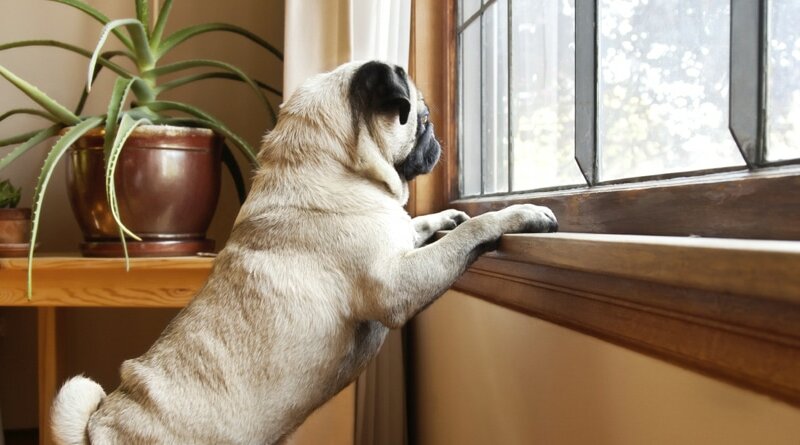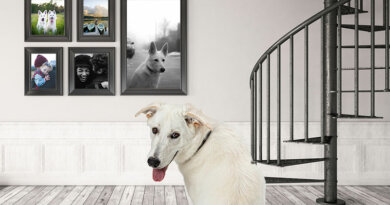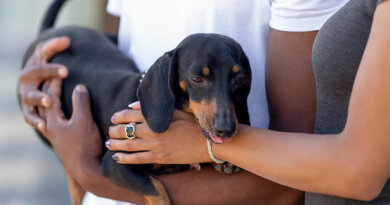Experts Warn That Dogs May Suffer From Separation Anxiety When Quarantine Ends
This morning on my Facebook feed, I noticed someone’s post that resonated greatly with me, “All of our dogs think we quit our jobs to spend more time with them. All our cats think we got fired for being the loser they always knew we were.”
As both a dog and cat person, I thought it was pretty funny. But also true. Our dogs are really loving all the time we’re spending at home because of the pandemic.
There is no doubt that our dogs are enjoying the extra time with us while we are all stuck at home due to the coronavirus quarantines. For our pets, it’s like one long weekend that never ends – they’re loving it.
But for us, humans, we are probably looking forward to getting back to business as usual and resuming life as normal. However, when we eventually do get there, we need to remember to take care of our pets’ mental health, as many dog experts have wanted that when the lockdown restrictions are lifted and we can go back outside, this can end up causing “extreme separation anxiety” in dogs.
Why? Because of how used to the lockdown they’ve gotten. They’re in a routine of having us constantly around.
Animal psychology expert Roger Mugford told the Times, “With such an overload of quality time with their families, dogs are building up a huge reservoir of over-dependency.”
Mugford, who has trained Queen Elizabeth’s corgis, added that our dogs could “suffer when mums and dads suddenly return to work and the children go back to school.”
Speaking to Insider, one veterinary behaviorist, Dr. Karen Seuda, said, “Dogs thrive on consistency and predictability, as we all do, so any time there’s an abrupt change, it can cause stress.”
When there are quick and rapid changes, dogs can get thrown for a loop, which in turn can lead to the development of unexpected or unusual behaviors. According to the ASPCA, such behaviors can be anything from defecating and urinating indoors, to chewing on items, howling, and escape attempts. Some particularly panicked dogs may even develop the very unsettling behavior of coprophagia: when they eat their own poop.
Mugford suggested to The Times, “Put a webcam on your dog, and you’ll see howling and pacing and other distress signs.”
According to the ASPCA, separation can do major psychological damage to dogs, which can then result in physical damage. When stressed out dogs panic, they may attempt to “dig and chew through doors or windows, which could result in self-injury, such as broken teeth, cut and scraped front paws and damaged nails.”
40% of dogs who are diagnosed with separation anxiety, so the American Veterinary Medical Association believes that the numbers count be staggering after lockdown ends. However, there is a way of easing your pet into a transition, that way they are prepared by the time lockdown ends.
Dr. Sueda said, “Allow your pet to have some alone time. You have your space, and they have theirs.”
If you live in a small apartment or condo, the ASPCA recommends training the dogs by having them stay in a different room or bathroom.
Separation anxiety specialist Malena DeMartini-Price shared with Insider, “It’s a gradual process of using small absences that start to teach the dog that absences are safe.”
Even with this, leaving dogs for even short amounts of time can be difficult, especially for many of us who are using them as emotional comfort. This includes those people who adopted or fostered dogs during the lockdown. Canine experts advise that dog owners try to keep the animal engaged with crate training, interactive toys, and other mental enrichments.
According to Dr. Sueda, there could be other ways of helping your pet cope with separation anxiety, such as Dog-appeasing pheromone (DAP), white noise, and medications, like Zylkene. Either way, we just need to be there to help our pets cope with our absence when life goes back to normal.





Top 100 Searched Drugs. What side effects can this medication cause?
https://avodart.science/ can i buy cheap avodart without prescription
drug information and news for professionals and consumers. Generic Name.